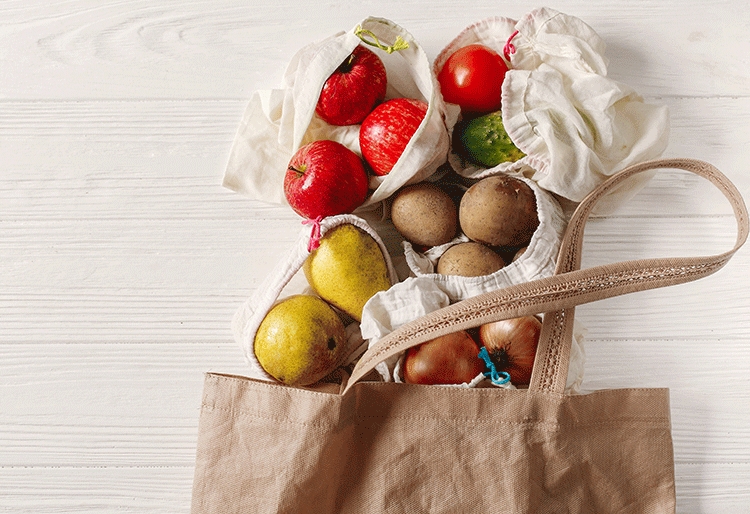Alternatives to plastic in the supermarket
Find the balance between practical and sustainable materials.
IT’S ECO, IT’S LOGICAL
Share

How to reduce plastic consumption
Plastic is everywhere. Without us realising, it is one of the materials that most surrounds us in our daily life. Wraps, bags, bottles, toys... many products use it. The main problem that we encounter is that, once its function has been fulfilled, if it is not recycled properly, it can become a serious danger to the environment.
In order to combat this, and more so given that European specifications aim to recycle 50% of the European Union's waste by 2020 and 70% by 2030, there are more and more initiatives working to develop materials that are less harmful to the environment, which could be used as an alternative.
Some of these materials are:
- Corn paste: biodegradable and compostable
- Sugar cane paste: biodegradable and compostable
- PLA: biodegradable and compostable
- Paper/Cardboard/Wood: recyclable, biodegradable and compostable
- Polypropylene: reusable
But what do these terms mean?
- Biodegradable: biodegradable containers degrade when in contact with the environment, becoming nutrients and biomass. We can find biodegradable items such as glasses, plates or cutlery, made from paper, cardboard and other materials such as: corn pulp, sugar cane or PLA. You can also find napkins or paper straws, among other things.
- Compostable: compostable packaging is biodegradable, but it can also be composted. This means that it degrades when it is in contact with other organic waste, and turns to compost or fertiliser. The disposable utensils used for picnics or family gatherings, described above, are examples of this.
- Reusable: these are containers that can be used many times and that will only be considered as waste when they are no longer re-used, in which case they will be recycled. This is the case for reusable cups or recycled bags.
Where can we recycle them?
- Paper products: blue container (paper and cardboard).
- Compostable products: organic container (brown).
- Reusable plastic products: yellow container (plastic).
According to Ecoembes recommendations, paper products containing organic waste should be disposed of in the brown container.
Recycled bags
Recycled bags, i.e. bags ‘for life’, are another option for replacing polyethylene plastic bags. At the moment, we can find bags with 70% recycled materials in the shops. These are made from a single material and normally use water-based inks, making them more sustainable and easily recyclable. In addition, they are often reusable, further increasing their environmental benefits.
Other options would be recycled paper bags or raffia bags, for which we can also find alternatives made with recycled plastic; cloth bags, which have a very long lifespan and can be kept clean simply by washing them; and even the shopping cart, for easy transport and with a large capacity.






